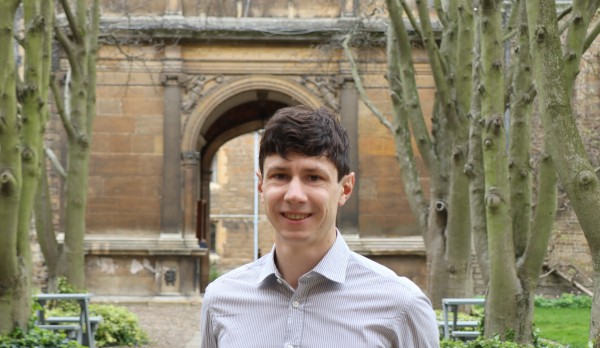Simoncelli wins 2022 EPFL Doctorate Award for thesis on theory of heat conduction in solids
Michele Simoncelli, a former doctoral student at the Theory and Simulation of Materials (THEOS) lab of Professor Nicola Marzari and NCCR MARVEL, has been awarded the EPFL Doctorate Award for his 2021 thesis “Thermal transport beyond Fourier, and beyond Boltzmann”.
The award—established in 1993 to distinguish work performed during an outstanding doctoral thesis at EPFL and to encourage particularly qualified researchers—was presented to Simoncelli as well as two other winners at a ceremony in Lausanne last night. The prize honors candidates who produce remarkable theses in terms of originality, the impact of results as measured by publication in one or several international journals and the presentation of the work.
“I’m very happy to receive it, but in general science is a collaborative effort," Simoncelli said. "I had the chance to work with extremely brilliant scientists during my PhD. In particular, my PhD advisor Prof. Nicola Marzari deeply supported and trusted me, and I also collaborated fruitfully with Prof. Francesco Mauri and Dr. Andrea Cepellotti. I would like to thank them for the very enriching scientific journey. I also had a great time at EPFL, and this of all contributed to the work I was able to do.”

His thesis presents a unified microscopic equation that describes heat conduction in crystals, glasses, and anything in-between on an equal footing. It predicts, correctly and in agreement with experiments, thermal conductivity in crystals, glasses, and, most importantly, in the mixed regime of complex crystals with ultra-low or glass-like conductivity. This was a significant first—no transport equation had so far been able to describe all of these materials simultaneously.
The formulation is relevant for several technological applications: it has been applied in the aerospace industry and in the field of renewable energy, setting the stage for the systematic engineering of thermal barrier coatings and the enhancement of the efficiency of devices used for thermoelectric conversion of waste heat into electricity.
The thesis also showed how in the crystalline regime such a microscopic transport equation can be coarse-grained into a set of “viscous heat equations” that generalize the macroscopic heat equation formulated by Fourier in 1822. These viscous heat equations account for both diffusion and heat hydrodynamics and rationalize the recent discovery of heat transfer via temperature waves in graphitic devices. It therefore promises and to be useful in the design of next-generation electronic devices, where heat is the main limiting factor for miniaturization and efficiency.
An article on the paper Unified theory of thermal transport in crystals and glasses, published in Nature Physics, can be found here.
An article on the paper Generalization of Fourier’s law into viscous heat equations, published in Physical Review X, can be found here.
An additional paper, Wigner formulation of thermal transport in solids, stemming from Simoncelli’s thesis, was recently published in Physical Review X.
Low-volume newsletters, targeted to the scientific and industrial communities.
Subscribe to our newsletter